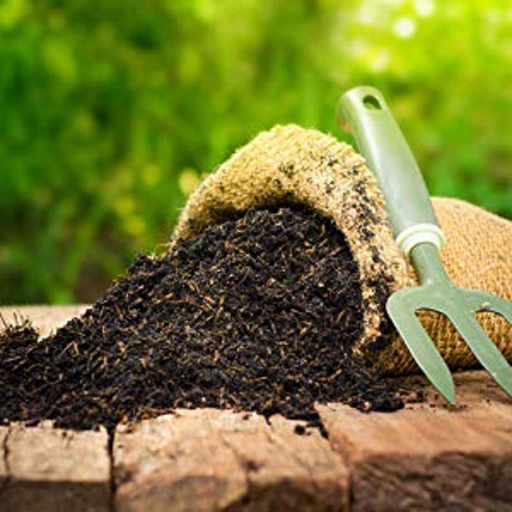Gardening enthusiasts and professionals alike often face the critical decision of choosing the right type of fertilizer to enhance plant growth and soil health. Among the various options available, organic fertilizers have gained increasing popularity due to their perceived environmental benefits and natural composition. However, like any gardening practice, the use of organic fertilizers comes with its own set of pros and cons. In this blog, we will delve into the positive aspects of using organic fertilizers, such as their sustainability and soil-improving qualities, as well as the potential drawbacks, including cost and availability. This comprehensive exploration aims to equip readers with a balanced understanding of organic fertilizers, helping them make informed decisions for their gardening endeavors.
What Are the Main Disadvantages of Using Organic Fertilizer?

Nutrient Release Slowness
Slow nutrient release is one of the main demerits of organic fertilizers. Unlike synthetic fertilizers that provide nutrients almost instantaneously, organic fertilizers decompose slowly thereby releasing the nutrients overtime as microorganisms in soil break down the organic matter. The slow release of these nutrients can be a two-edged sword; it may not promptly supply plants with needed nourishment during critical times for growth even though it curbs nutrient leaching and runoff. Hence gardeners might have to add other sources of nutrition or apply organic fertilizers well before planting if essential elements are to be available when plants need them.
Nutrient Composition Unpredictability
Unpredictable nutrient composition is another disadvantage that accompanies use of organic fertilizers. Synthetic fertilizers are made up of exact amounts of specific nutrients but this is not the case with organic types which originate from natural sources like compost, manure and bone meal whose nutrient content varies greatly. This lack of consistency makes it difficult for gardeners to establish what amounts or kinds of nutrition they offer their crops. For example, a batch of composted manure might have high nitrogen levels but low phosphorous content while another batch could possess an entirely different nutrient profile. These irregularities necessitate regular soil testing and adjustment to ensure proper balance of nutrients in order to grow optimal plants which may be quite complicated.
The Role Played By Micro-Organisms
Micro-organisms play a crucial role in the effectiveness of this type of fertilizer by breaking down organic matter and converting it into forms usable by plants; mainly bacteria and fungi decompose materials like compost and manure thereby releasing such substances as nitrogen, phosphorus and potassium into the soil. It boosts both fertility as well as structure thus enabling plants to access essential nutrients through roots.To improve soil porosity, water retention ability plus root extension depends on beneficial microbial activity within soil.The maintenance therefore requires an active microbial population in soils to maximize the benefits of organic fertilizers, hence activities like rotating crops, growing cover crops or reducing soil tillage are important to sustain soil health.
Is Organic Fertilizer More Costly?
Cost comparison between chemical and organic fertilizers
When making comparisons between the costs of organic fertilizers and synthetic ones, several factors should be put into consideration. Normally, organic fertilizers are more expensive at first mainly due to higher investments required for producing and processing organic matter. These costs reflect sustainable practices involved in its manufacture, which usually include sourcing of organic matter, composting and other environmentally friendly procedures.
Immediate Costs
Organic Fertilizers:
- Average price per pound: $0.50 to $3.00
- Typical products: compost, manure, bone meal, feather meal
- Synthetic Fertilizers:
- Average price per pound: $0.10 to $0.50
- Typical products: urea, ammonium nitrate, superphosphate
Longevity and Soil Health
It is also necessary to consider long-term benefits and costs associated with each fertilizer variant. With time, organic fertilizers make soil healthier by improving microbial activity within it; enhancing soil structure; increasing water holding capacity of soils. As such it may decrease future requirements for fertilization thereby offsetting higher prices experienced initially.
Environmental Impact
This is because they reduce environmental impacts brought about by chemical runoff leading to sustainable development through prevention of pollution as well as a balanced ecosystem. The environmental aspect of this advantage though not always determinable in direct financial terms has the potential of yielding long term savings plus positive ecological consequences.
In conclusion whereas synthetic fertilizer is cheaper than organic one initially, the latter eventually has significant advantages on soil fertility/plant nutrition/ecology that make initial investment worthwhile especially for those dedicated towards sustainable horticulture practices.
Implications for Long-term Finances
To deeply understand the long-term financial implications involved when using either organic or inorganic chemicals there are various factors that one ought to keep in mind including maintenance of soil health, crop yield levels as well as possible savings from future inputs. Organic fertilizers often result in improved soil fertility and structure over time, even though they normally cost more initially as shown in top literature on the subject. In addition, organic production methods will incur less expenses for pest/disease management because healthy soils/plants are inherently resilient. This long-term investment in soil health and ecosystem stability can translate into significant financial savings and more sustainable agriculture practices over the years. On the other hand, synthetic fertilizers often provide rapid outcomes but degrade soil quality forcing continuous high costs of soil restoration/pest control. As a result, while initial costs of organic fertilizers are high, their utilization leads to greater economic and sustainable agricultural activities in the long run.
Investing in Soil Health
For agriculture to be both productive and sustainable, it needs to invest in soil health. The current top literature highlights several benefits associated with enhancing soil health through organic practices such as increased levels of nutrients availability, higher water holding capacity as well as enhanced diversity. For instance, it is essential for richer composts and greener manures that contribute towards a thriving environment that includes many beneficial microorganisms responsible for enriching soil structure. Thus better plants survival rates occur besides stronger immunity against illnesses or infestations by pests due to this factor when maintained up to date soils may sequester carbon thus contributing to climate change mitigation instead of relying on artificial inputs which ultimately lead to decay of these basic properties over time. Therefore emphasizing on such factors is an ecological sound practice whose returns will be realized over a long period.
How Can the Quality of Organic Fertilizers Vary?

Lack of Uniformity
Due to this non-standardization within industry, quality for organic fertilizers may vary greatly. Different manufacturers, as per the latest information from prominent sources on this subject, follow various production techniques and recipe lists leading to inconsistent nutrient profiles. Also, there is no uniform regulatory framework for organic fertilizers unlike their chemical counterparts that have to meet certain government set standards. Because of this inconsistency, it can be hard for gardeners and farmers to know whether or not their organic fertilizers are effective and safe. It is therefore vital for consumers to research reputable brands or seek those that have been certified as organic by a recognized authority in order to ensure plant health and crop yields are not affected.
Different Sources; Different Compositions
The quality of organic fertilizers can be influenced by several factors such as the sources of their ingredients and their compositions. Organic fertilizers can be made from a variety of materials including animal manure, bone meal and plant residues. Each source has its own nutrient profile which therefore affects how effective they are in their job. For example, animal-based fertilizers usually have high levels of nitrogen while plant-based ones may possess more potassium or other micronutrients.The final nutrient content depends on the decomposition process and the conditions under which raw materials undergo processing. Besides, even though two fertilisers might come from the same material there isn’t any standardized manufacturing process hence the nutrient density and release rates will differ making them more or less efficient toward supporting crop growth and soil fertility. Therefore, when selecting a product, consumers should consider what type of organic material is used in it as well as its processing methods – looking out for products with clear ingredient sourcing that has good certification practices would guarantee better quality performance.
Effectiveness of Inadequate Composting
Improper composting may result in several adverse effects on both environment and compost quality itself . First off all improper composting emits dangerous greenhouse gases such as methane and nitrous oxide that have a great contribution to climate change. This occurs when organic materials are composted under wrong conditions leading to anaerobic decomposition and emission of these harmful gases.
Inadequate composting can yield incompletely decomposed or pathogen, weed seed and other undesirables-containing composts, which can be detrimental to the health of plants and introduce diseases or pests in gardens or farming systems. In order for a compost pile to reach temperatures that will kill weed seeds and undesirable organisms, it must be properly aerated with enough moisture in addition to having an optimum green-brown ratio.
Lastly, poor compost pile management may lead to foul smells or attraction of pests like rodents as well as insects that would cause a lot of inconvenience and unhygienic conditions around homes or communities. Thus, appropriate mannerisms such as regular turning and proper moisture control are essential in ensuring the production of quality composts necessary for good plant growth and soil fertility.
Do Organic Fertilizers Attract Pests or Weeds?

Potential Pests Issues
Although they are great for the soil quality, organic fertilizers can sometimes draw pests.Compost and manure (organic fertilizers) can attract pests such as rats, mice, and various insects if not properly composted or managed. These pests are attracted by the nutrients as well as organic matter present in these fertilizers.
Proper storage and application techniques may help alleviate these challenges. Pest attraction can be avoided through ensuring that compost is fully decomposed before use and avoiding over-application. Additionally, integrating pest-repellent plants and maintaining garden cleanliness can further reduce pest problems. Thus, proper management practices ensure that although organic fertilizers have a potential of attracting pests yet it is easy to address this concerns.
Weed Seeds in Manure
Manure could really serve as a vector of weed seeds unless correctly composted. Fresh manure often contains viable weed seeds that have not been killed through decomposition processes according to such sources, Proper composting of manure involves reaching high temperatures of at least 130-140°F (54-60°C) for several days just to destroy these seeds. If temperatures remain below this range during application of manure into gardens or fields infestation will be caused.
Only using well-composted manure as well as managing the whole process thoroughly from start till end can minimize the risk of weed seed introduction. This practice allows people to enjoy the advantages associated with organic fertilizer while avoiding unwanted growths of weeds.
What Are the Environmental Drawbacks of Using Organic Fertilizers?

Surface flow and percolation
Concerns for runoff and leaching are raised when using biofertilizers. From my own experience, it is always the case that this happens when excessive nutrients from fertilizers get drained by rains or irrigation waters into adjacent water bodies. This can accelerate nutrient pollution leading to harmful algal blooms as well as ecosystem degradation. To reduce the amount of runoff and leaching, I aim at applying the right volume of fertilizer which will be well blended with soil. As a result farmers will optimally get essential nutrients but such macro-elements cannot drift away from their target zones. In so doing, I will cut down on environmental impacts connected with organic manure application.
Emissions from transport
The transport emissions associated with organic fertilizers come about mainly due to their production process, packaging process and distribution channels. These activities result in emission of greenhouse gases which offset some of the benefits realized environmentally on account of such fertilizers use. Food and Agriculture Organization (FAO), this can only be minimized through localized production as well as sourcing hence reducing transportation miles. The support for local providers coupled with usage of more locally sourced organic materials helps in lowering the carbon footprint linked to organic fertilizers thereby improving its sustainability.
Consequently, there is ground pollution because of overuse.
When you apply more than enough amount of organic fertilizers, it may lead to soil pollution thus endangering fertility levels together with surrounding environment at large. On top of that, excess use leads to storage upnutrients mostly nitrogenandphosphorous that interfere with natural balance in soilsystems.Thus soil erosion destroying its structure and fertility can readily occur.Any surplus nutrients might drain into undergroundwaters causing contamination while attacking human life.recommended practices in place are regular soil testing, accurate nutrient management plans and customized ways of applying fertilizers for specific crops. Consequently, these risks can be mitigated effectively when they adhere to the best strategies available.
Frequently Asked Questions (FAQs)

Q: What are the pros and cons of using organic fertilizers in gardening?
A: Improving soil health, plant growth promotion, enhancing soil structure, promoting environmental conservation are some of the advantages associated with the use of organic fertilizers. However, this type of fertilizer can take time before it manifests results. It also tends to be expensive and lacks all essential nutrients in an available form.
Q: What are the benefits and disadvantages linked to using organic fertilizers instead of chemical ones?
A: Organic manure enhances soil health thereby promoting growth by plants through increased activity of soil microorganisms and addition of organic matter while on the other hand, its drawbacks include slow nutrient release rate as well as high costs. Conversely, chemical manure provides nutrients instantly but may impair soil micro- organisms leading to waterway pollution.
Q: What are the specific demerits related to use of organic fertilizers?
A: Slower nutrient release compared to chemical alternatives; requirement for greater amounts when compared with inorganic counterparts to attain equal nutrient levels; possibility that they may contain pathogens; these options are more costly which is a crucial factor for those who opt for organic products.
Q: How do organic fertilizers enhance soil health and promote plant growth?
A: Organic fertilizer improves soils’ texture by adding decomposed materials into it thus leaving spaces that facilitate maximum water holding capacity thus benefiting soils’ nutrient retention ability among others things that result into healthy soils hence plant growth.
Q: Are there any shortcomings of using chemical fertilizers?
A: Yes; Potential harm to soil microbes; Pollution in waterways; Soil depletion leading to reliance on continuous fertilizer application over time.
Q: Why should one choose an organic fertilizer rather than an artificial one?
A: The advantages include improvement in the health status of soils , reduction in environmental effects emanating from such practices , promotion of biodiversity within soils and improvement in their structures . Also , the long term fertility properties of organic manure is environmentally friendly and hence provide a reliable solution to soil fertility.






